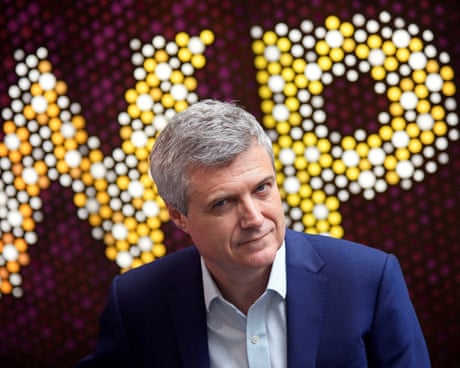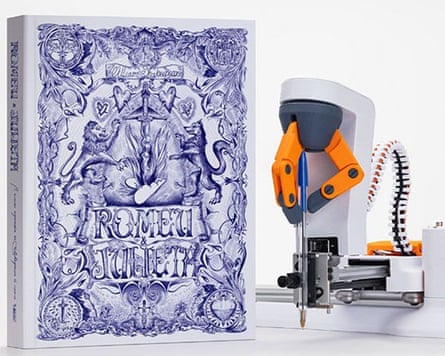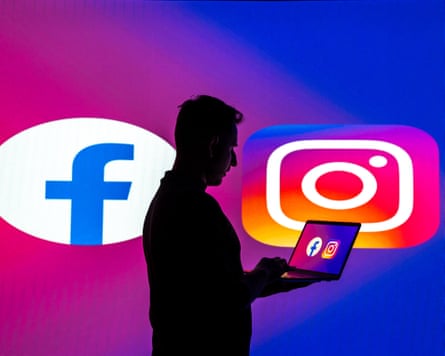The ‘death of creativity’? AI job fears stalk advertising industry

By Guardian-Mark Sweney-Mon 9 Jun 2025 13.31 BST
WPP and others roll out AI-generated campaigns as Facebook owner Meta plans to let firms create their own ads.
WPP chief Mark Read to step down as agency battles AI.
From using motion capture tech to allow the Indian cricketing star Rahul Dravid to give personalised coaching tips for children to an algorithm trained on Shakespeare’s handwriting powering a robotic arm to rewrite Romeo and Juliet, artificial intelligence is rapidly revolutionising the global advertising industry.
Those AI-created adverts, for the Cadbury’s drink brand Bournvita and the pen maker Bic, were produced by agency group WPP, which is spending £300m annually on data, tech and machine learning to remain competitive.
Mark Read, the chief executive of the London-listed marketing services group, has said AI is “fundamental” to the future of its business, while admitting that it will drastically reshape the ad industry workforce.

Now Read has announced he is to leave at the end of this year, after almost seven years as chief executive and more than 30 at WPP, as the company struggles to keep pace with its peers and also counter moves by big tech to muscle in to the AI-driven future of advertising.
For ad agencies, the upheaval originates from a familiar source. Over more than a decade, Google and the Facebook owner, Meta, successfully built tech tools for publishers and ad buyers that helped them to dominate online. Big tech hoovered up almost two-thirds of the £45bn spent by advertisers in the UK this year. Now, Mark Zuckerberg wants to take over making the ads, too.

The Meta boss is gearing up to unleash AI tools to allow advertisers to fully create and target campaigns on his social media sites, prompting fears of the “death of creativity” – and widespread job cuts at agencies.
Last week it emerged that these tools are to be rolled out by the end of next year, with Zuckerberg describing the capability in a recent interview as a “redefinition of the category of advertising. You don’t need any creative, you don’t need any targeting, you don’t need any measurement, except to be able to read the results that we spit out,” he said last month, in comments that appear to render much of the advertising industry obsolete.
Rahul Dravid in Cadbury’s Bournvita campaign, which used AI.
Agencies of all sizes – and particularly the deep-pocketed international groups such as WPP, Publicis and Omnicom – are pouring investment into developing their own AI tools and working with tech companies such as Meta and Google. But the plan is meant to be to keep clients, not lose them.
“I think there is no doubt AI will disintermediate a large number of jobs,” says the chief executive of one big ad agency. “Having said that, there are many agencies with big corporate clients that really could do with being slimmed down a lot. I can see staffing in areas like strategy, consumer insight and some conceptual roles being safe, but what will be really hit is those involved in production and the realisation of ideas.”
Big tech executives espoused the benefits of AI at the annual Enders Deloitte conference on the media and telecoms industry last week.
Stephan Pretorius, who described himself as “WPP’s AI guy” as he co-led a session with Meta, said: “Creativity, in its purest form, remains a human skill.”
WPP’s Stephan Pretorius on AI and advertising.
He argued that AI does not equate to job cuts but admitted that agencies need to restructure and advertising client relationships are changing.
“AI replaces tasks, it eliminates tasks, it doesn’t eliminate jobs,” he said. “A lot of what we used to get paid for is now getting automated and therefore our commercial models have to change, our team structures have to change. The way we are incentivised by our clients is changing. But that is the transition.”
Last month WPP said there would be an undisclosed number of redundancies globally across WPP Media, formerly known as GroupM, which plans and buys billions of pounds of ad space for clients across digital and traditional media.
“You have a situation where the big holding companies are in a dilemma,” another ad agency chief executive says. “Clients expect us to invest millions developing AI so they can cut their budgets because things can be done quicker and cheaper. Lots of clients are asking for fee reductions.”
So far the AI revolution does not appear to be having a big impact on the UK industry.

